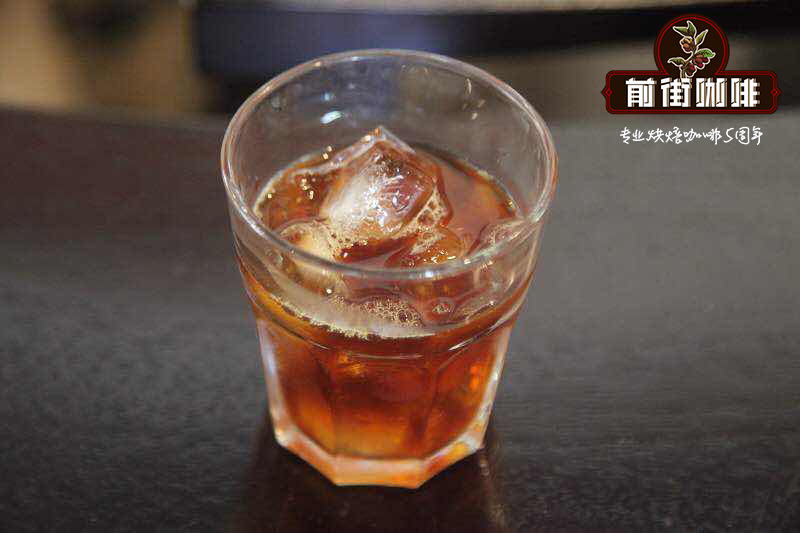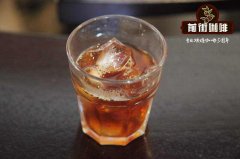What is the flavor of rose summer? a brief introduction to the flavor description of rose summer.

Professional coffee knowledge exchange more coffee bean information please follow the coffee workshop (Wechat official account cafe_style)
With the hurricane-like power of Geisha sweeping the world, the coffee revolution has led to a retreat from the Blue Mountains of Jamaica and Kona, Hawaii, which have long occupied the throne of the coffee kingdom. After numerous battles, this wild species, which originated in Ethiopia, has been planted in a large coffee producing area, and its best spokesman is from the La Esmaralda estate in Panama.
Ruoxia, geisha, happens to be synonymous with Japanese geisha. Export to Kenya, Tanzania and Costa Rica, transplanted to Panama in the 1960s, and then survived nearly half a century before becoming a blockbuster, defeating the victorious armies of Bourbon, Kaddura, Kaduai, Tibica and other varieties, winning the first prize of the Panama National Treasure Bean Cup Test Competition in 2005, 2006 and 2007. In 2007, the International famous Bean Cup Test sponsored by the American Fine Coffee Association (SCAA) won the championship again, and the bidding price was sold at US $130 per pound, setting a record for the highest price in the history of competition beans. It is reported that the later Panamanian national treasure bean competition will be divided into two groups: Rose Summer and non-Rose Summer, so as not to be robbed of the brilliance of other varieties by Rose Summer. Rosa is a member of the Tibika family, but it became famous more than 70 years after leaving Ethiopia, and fulfilled the saying that Ethiopia is a treasure trove of Arabica genes. Giving a variety to go abroad is enough to stir up trouble in the coffee market.
In the market, we all think that rose summer is very expensive, it can be recalled that the results of the annual 2018 red rose summer auction have been released! First place: $340 / lb! The output of rose summer is very low, which is just an excuse to sell expensive. What is really fascinating is the unique and attractive coffee flavor of rose summer, which is the most important reason why rose summer is extremely expensive. From now on, Don Quixote can place an order for customized baking of Panamanian Emerald Manor Rose Summer, ① Rose Summer boutique coffee beans 50g, the price is 180 yuan. ② Rose summer boutique coffee beans 100g, the price is 280yuan. ③ Rose summer boutique coffee beans 227g, the price is 600yuan.
Introduction to Rose Summer in Qianjie
[green label Rose Summer] has the aroma of chamomile and honeysuckle, sweet peach, citrus, lemon, bergamot, cream and honey.
* hand punch
Parameters: 15g powder, V60 filter cup, water temperature 90 ℃, ratio of powder to water 1:15, grinding degree BG 5R (Chinese standard No. 20 sieve pass rate 58%).
Technique: steam 30 grams of water for 30 seconds, quickly inject water to 125 grams of water, continue to inject water to 227 grams when the water level is about to expose the powder bed, remove the filter cup when the powder bed is about to be exposed, and the extraction time is about two minutes.
[green label Rose Summer] it smells sour citrus and sweet brown sugar, with citrus, lime and bergamot flavors in the mouth, cocoa and cream in the middle, green tea and honey at the end, and long-lasting brown sugar. The finish is chrysanthemum and a hint of honeysuckle.
END
Important Notice :
前街咖啡 FrontStreet Coffee has moved to new addredd:
FrontStreet Coffee Address: 315,Donghua East Road,GuangZhou
Tel:020 38364473
- Prev

Ethiopian coffee production methods how Ethiopian coffee is produced sustainably
Ethiopian coffee production methods Ethiopian coffee is usually produced in a sustainable manner, mostly as garden coffee. This means that it is planted by farmers near their houses and is often intercropped with other plants. It is also common for producers to grow coffee in the semi-forest system. In the semi-forest system, the natural forest is transformed and trimmed.
- Next

Colombia rose summer flavor introduction
Professional coffee knowledge exchange More coffee bean information Please pay attention to Coffee Workshop (Weixin Official Accounts cafe_style) Geisha is an Arabica coffee variety originating from Geisha Mountain in southwest Ethiopia. The author transliterates it as Guixia; because Geisha has Japanese hair.
Related
- Beginners will see the "Coffee pull flower" guide!
- What is the difference between ice blog purified milk and ordinary milk coffee?
- Why is the Philippines the largest producer of crops in Liberia?
- For coffee extraction, should the fine powder be retained?
- How does extracted espresso fill pressed powder? How much strength does it take to press the powder?
- How to make jasmine cold extract coffee? Is the jasmine + latte good?
- Will this little toy really make the coffee taste better? How does Lily Drip affect coffee extraction?
- Will the action of slapping the filter cup also affect coffee extraction?
- What's the difference between powder-to-water ratio and powder-to-liquid ratio?
- What is the Ethiopian local species? What does it have to do with Heirloom native species?

